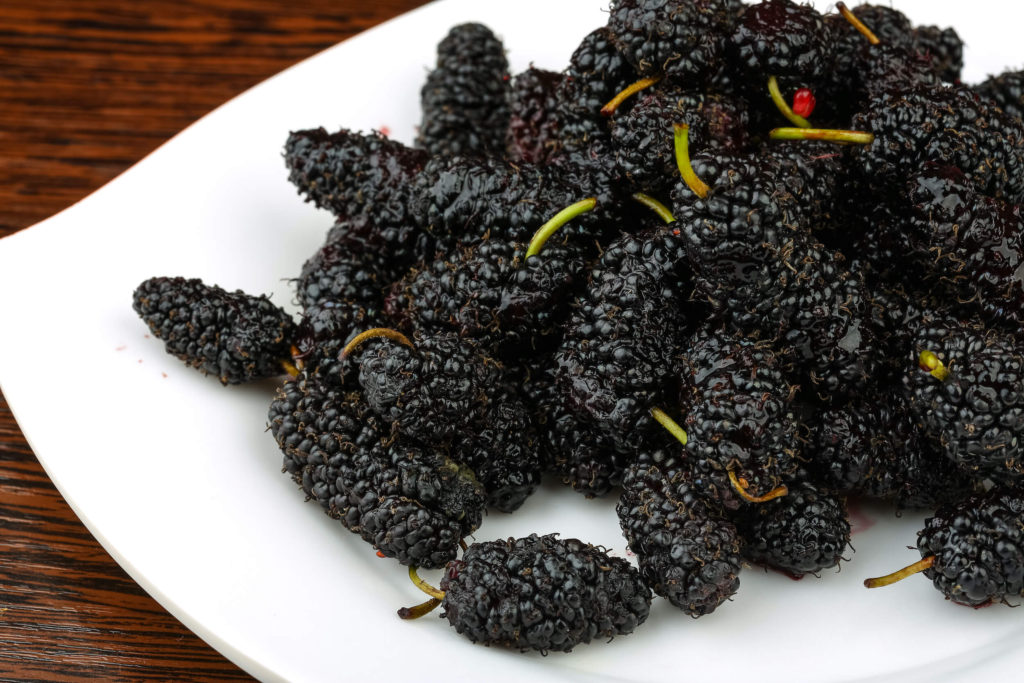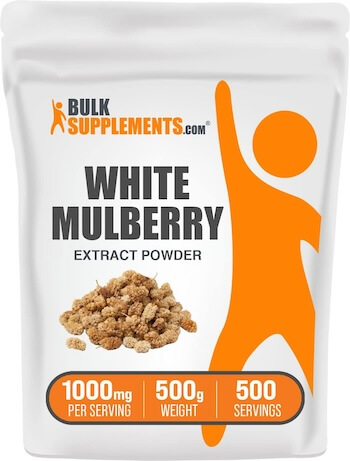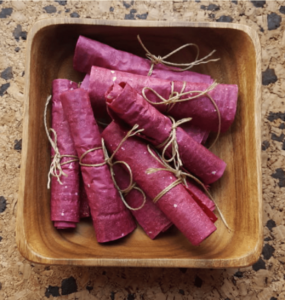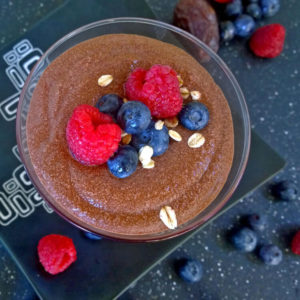Mulberries, or Morus nigra. L., are harvested from the silkworm tree, belonging to the Moraceae species. While most of us think of a juicy reddish-purple fruit resembling a blackberry when we hear the word mulberry, there are several known varieties including white mulberries, red mulberries, and black mulberries. White mulberries are prevalent in China, and as the name suggests they are white speckled with small, dark seeds. Red mulberries, the sort that most are familiar with, grow in the United States.
Black mulberries are extremely dark purple in color and can be discovered thriving in western Asia. The ripe fruit, of all varieties, grows to a size of two to five centimeters. Rich in flavonoid photo-nutrients, mulberries have diverse health benefits, and they are delightfully delicious too! Antioxidants, vitamins, and minerals are all delicately packaged within these sweet and juicy gifts of nature.
RESVERATROL
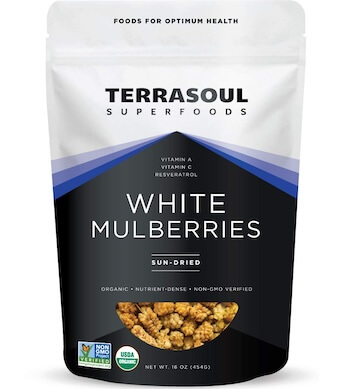
Naturally Sweet / Rich in Vitamin C / Low Glycemic
A polyphenol flavonoid antioxidant that is found in grapes as well as berries, resveratrol is the primary antioxidant found in mulberries. Resveratrol helps to shield against the risks associated with stroke by altering the molecular mechanisms taking place within the blood vessels, reducing the number of hormones released that induce blood vessel constriction, and increasing the production of nitric oxide – thereby minimizing damage.
VITAMIN C
Vitamin C is a powerful immune system booster that guards against infection, increases the elimination of toxins, and decreases inflammation.
ANTHOCYANINS
The chemical that gives mulberries their rich color, anthocyanins may also provide health benefits such as boosting cognitive function by enhancing memory and preventing cognitive decline related to age.
Anthocyanins may also protect against cancer and cardiovascular disease. More research is needed to understand the precise effects of anthocyanins.
ZEAXANTHIN
A carotenoid that is essential for eye health, Zeaxanthin protects the retina from the harmful effects of UV rays, by strengthening the retina’s ability to filter light.
IRON
While most fruits are not rich sources of iron when compared to vegetables, mulberries are an exception. Just 1/2 cup of mulberries provides more than 20% of the recommended daily intake of iron. Adequate iron intake is essential for the production of red blood cells and hemoglobin. The berries are not the only component of these robust plants that provide healing benefits. The leaves are frequently employed in traditional Chinese medicine in herbal remedies such as teas and tinctures, and current research demonstrates just how powerful mulberry leaf really is. Let’s explore some of the noted health advantages of the mulberry leaf.
ANTIOXIDANT-RICH
Mulberry leaves are rich in the excellent antioxidants beta-carotene and ascorbic acid, which help to protect the body against cellular damage due to toxins. Research has demonstrated that beta-carotene may reduce the risk of developing cancer.
MINERAL-RICH
Mulberry leaves contain high levels of calcium, zinc, magnesium, copper, and iron.

STABILIZES BLOOD SUGAR
Perhaps the most notable use of mulberry tea is to subdue sugar cravings. Due to the gallic acid content in mulberry leaves, mulberry lowers blood glucose levels. A study in 2007 demonstrated that ingesting mulberry significantly decreased glucose levels for two hours after consumption. This is significant for the prevention and maintenance of diabetes.
REDUCES CHOLESTEROL
A study in 2013 demonstrated that ingesting mulberry leaf powder three times a day lowers LDL cholesterol levels and triglyceride levels significantly.
ANTI-INFLAMMATORY
Mulberry leaf has been used in traditional Chinese medicine to reduce the inflammation that often goes along with chronic disease for ages. Studies have shown that mulberry life helps to inhibit the inflammatory response in the body. This finding is incredibly promising for inflammatory conditions such as rheumatoid arthritis, Crohn’s disease, lupus, ulcerative colitis, and asthma.
References:
http://www.ncbi.nlm.nih.gov/pubmed/17135021
http://www.ncbi.nlm.nih.gov/pubmed/26885210
http://www.sciencedirect.com/science/article/pii/S175646461200148X
http://www.ncbi.nlm.nih.gov/pubmed/19241587
YOU MAY ALSO LIKE:
HOMEMADE FRUIT LEATHER
If you’re a busy parent, have picky eaters in your house, or just want to try something new for snack time…
REWILD YOURSELF
Awareness of our situation must come before inner changes, which in turn come before changes in society. Nothing happens in the…
KAPHA BALANCING FOODS
To balance Kapha, it is important to rise early in the morning, before 6 a.m., and engage in gentle exercise for…
13.1 MANTRAS TO GET YOU THROUGH YOUR NEXT MARATHON
By Braden ToblerThere has been a study on mantras and it turns out there could be a lot more to them…
WHAT YOU NEED TO KNOW ABOUT YOUR ROOT CHAKRA
What is the root chakra? It’s your first and most important energy center, and it’s located at the base of your…
VEGAN BEET CHOCOLATE AND DATES MOUSSE
Chocolate and beets do not mix? Wrong! Try this extraordinary beet mousse by our friend Aarika. She knows beets like nobody…

